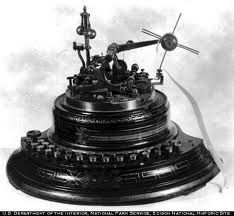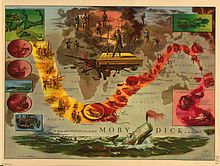This is your morning Open Thread. Pour your favorite beverage and review the past and comment on the future.
Find the past “On This Day in History” here.
November 17 is the 321st day of the year (322nd in leap years) in the Gregorian calendar. There are 44 days remaining until the end of the year.
Elizabeth became queen at the age of 25, and upon hearing of her accession to the throne, she is reputed to have quoted the 118th Psalm’s twenty-third line, in Latin: “A Dominum factum est illud, et est mirabile in oculis notris” – “It is the Lord’s doing, and it is marvellous in our eyes.”
On 20 November 1558, Elizabeth declared her intentions to her Council and other peers who had come to Hatfield to swear allegiance. The speech contains the first record of her adoption of the mediaeval political theology of the sovereign’s “two bodies”: the body natural and the body politic:
My lords, the law of nature moves me to sorrow for my sister; the burden that is fallen upon me makes me amazed, and yet, considering I am God’s creature, ordained to obey His appointment, I will thereto yield, desiring from the bottom of my heart that I may have assistance of His grace to be the minister of His heavenly will in this office now committed to me. And as I am but one body naturally considered, though by His permission a body politic to govern, so shall I desire you all…to be assistant to me, that I with my ruling and you with your service may make a good account to Almighty God and leave some comfort to our posterity on earth. I mean to direct all my actions by good advice and counsel.
As her triumphal progress wound through the city on the eve of the coronation ceremony, she was welcomed wholeheartedly by the citizens and greeted by orations and pageants, most with a strong Protestant flavour. Elizabeth’s open and gracious responses endeared her to the spectators, who were “wonderfully ravished”. The following day, 15 January 1559, Elizabeth was crowned at Westminster Abbey and anointed by the Catholic bishop of Carlisle. She was then presented for the people’s acceptance, amidst a deafening noise of organs, fifes, trumpets, drums, and bells.

The Elizabethan era was a time associated with Queen Elizabeth I’s reign (1558-1603) and is often considered to be the golden age in English history. It was the height of the English Renaissance and saw the flowering of English poetry, music and literature. This was also the time during which Elizabethan theatre flourished, and William Shakespeare and many others composed plays that broke free of England’s past style of plays and theatre. It was an age of exploration and expansion abroad, while back at home, the Protestant Reformation became more acceptable to the people, most certainly after the Spanish Armada was repulsed. It was also the end of the period when England was a separate realm before its royal union with Scotland.
The Elizabethan Age is viewed so highly because of the periods before and after. It was a brief period of largely internal peace between the English Reformation and the battles between Protestants and Catholics and the battles between parliament and the monarchy that engulfed the seventeenth century. The Protestant/Catholic divide was settled, for a time, by the Elizabethan Religious Settlement, and parliament was not yet strong enough to challenge royal absolutism. England was also well-off compared to the other nations of Europe. The Italian Renaissance had come to an end under the weight of foreign domination of the peninsula. France was embroiled in its own religious battles that would only be settled in 1598 with the Edict of Nantes. In part because of this, but also because the English had been expelled from their last outposts on the continent, the centuries long conflict between France and England was largely suspended for most of Elizabeth’s reign.
The one great rival was Spain, with which England clashed both in Europe and the Americas in skirmishes that exploded into the Anglo-Spanish War of 1585-1604. An attempt by Philip II of Spain to invade England with the Spanish Armada in 1588 was famously defeated, but the tide of war turned against England with an unsuccessful expedition to Portugal and the Azores, the Drake-Norris Expedition of 1589. Thereafter Spain provided some support for Irish Catholics in a debilitating rebellion against English rule, and Spanish naval and land forces inflicted a series of reversals against English offensives. This drained both the English Exchequer and economy that had been so carefully restored under Elizabeth’s prudent guidance. English commercial and territorial expansion would be limited until the signing of the Treaty of London the year following Elizabeth’s death.
England during this period had a centralised, well-organised, and effective government, largely a result of the reforms of Henry VII and Henry VIII. Economically, the country began to benefit greatly from the new era of trans-Atlantic trade.

 Did the young Austrian nun named Maria really take to the hills surrounding Salzburg to sing spontaneously of her love of music? Did she comfort herself with thoughts of copper kettles, and did she swoon to her future husband’s song about an alpine flower while the creeping menace of Nazism spread across central Europe? No, the real-life Maria von Trapp did none of those things. She was indeed a former nun, and she did indeed marry Count Georg von Trapp and become stepmother to his large brood of children, but nearly all of the particulars she related in her 1949 book, The Story of the Trapp Family Singers, were ignored by the creators of the Broadway musical her memoir inspired. And while the liberties taken by the show’s writers, Howard Lindsay and Russel Crouse, and by its composer and lyricist, Richard Rodgers and Oscar Hammerstein II, caused some consternation to the real Maria von Trapp and to her stepchildren, according to many later reports, those liberties made The Sound of Music a smash success from the very night of its Broadway opening on this day in 1959.
Did the young Austrian nun named Maria really take to the hills surrounding Salzburg to sing spontaneously of her love of music? Did she comfort herself with thoughts of copper kettles, and did she swoon to her future husband’s song about an alpine flower while the creeping menace of Nazism spread across central Europe? No, the real-life Maria von Trapp did none of those things. She was indeed a former nun, and she did indeed marry Count Georg von Trapp and become stepmother to his large brood of children, but nearly all of the particulars she related in her 1949 book, The Story of the Trapp Family Singers, were ignored by the creators of the Broadway musical her memoir inspired. And while the liberties taken by the show’s writers, Howard Lindsay and Russel Crouse, and by its composer and lyricist, Richard Rodgers and Oscar Hammerstein II, caused some consternation to the real Maria von Trapp and to her stepchildren, according to many later reports, those liberties made The Sound of Music a smash success from the very night of its Broadway opening on this day in 1959. Welcome to the Stars Hollow Gazette‘s
Welcome to the Stars Hollow Gazette‘s 



Recent Comments